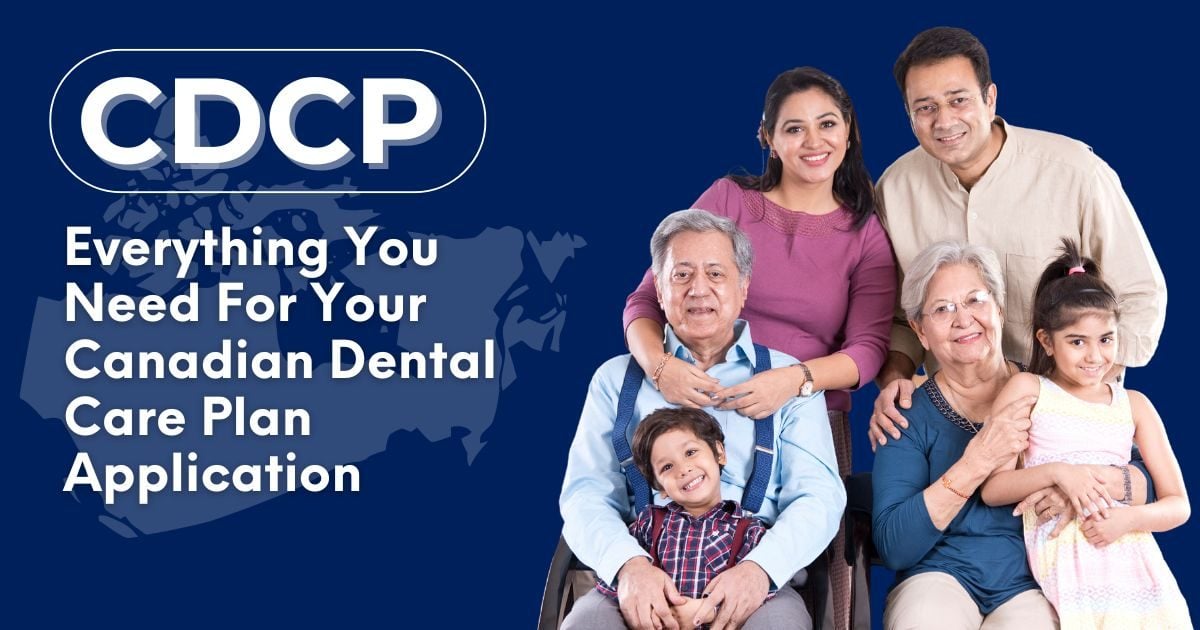Approximately 858,900 Canadian adults have been diagnosed with sleep apnea, according to the most recent Canadian Community Health Survey. In addition, more than one-quarter of Canadian adults say they have symptoms and risk factors that put them at a higher risk of having sleep apnea or developing the condition in the future. You’ve probably heard a sleep clinic can help you get a proper diagnosis and treatment plan while a doctor can help you lose weight to minimise symptoms. However, you may not realise your dentist can also help ease sleep apnea.
Understanding Sleep Apnea
Sleep apnea is a chronic condition that causes people to stop breathing at different times throughout their sleep cycles. There are two main types: Obstructive sleep apnea; and Central sleep apnea.
Obstructive sleep apnea is the most common form of sleep apnea. During the interruptions to breathing, called apneas, the airway’s soft tissue collapses. This collapse prevents oxygen from passing through the airway and reaching the lungs.
During central sleep apnea, the brain stops sending messages to the body to breathe during sleep. No physical disruption to the airway takes place, although the body responds as if an interruption occurs.
Both types of sleep apnea are disruptive to sleep patterns. People with untreated sleep apnea typically wake up feeling tired and lethargic. Left untreated, sleep apnea can have a significant impact on short- and long-term mental and physical health.
How Sleep Apnea Impacts Health
Sleep apnea increases the risk of several other chronic health complaints. These problems can impact mental and physical health.
According to the Canadian Community Health Survey, Canadian adults with sleep apnea are 1.8 times more likely to have high blood pressure. They are also 2.2 times more likely to suffer from heart disease and mood disorders, including depression, mania, dysthymia, and bipolar disorder. Canadians with sleep apnea also have a 2.5 times higher risk of developing diabetes. In addition, global studies indicate a strong link between sleep apnea and strokes and obesity.
The chronic fatigue that comes with untreated sleep apnea can also increase the risk of injuries. People with untreated sleep apnea are significantly more likely to have accidents at work or when they’re behind the wheel. These accidents can be significant and fatal.
The Role Dentists Play in Sleep Apnea Treatment
Dentists can be a valuable partner for obstructive sleep apnea treatment. After receiving a diagnosis, a dental appointment can help people with sleep apnea learn more about their treatment options. Dentists may recommend wearing oral appliances. These devices can ease symptoms in patients of normal weight with mild to moderate sleep apnea.
Mandibular advancement devices, sometimes called dental sleep devices, are the most commonly used oral appliances. These devices, which look like mouthguards, push the lower jaw forward. In this position, the muscles which collapse during apneas tighten so that they can’t fall down. Over time, oral appliances can make the airway stronger and more rigid so that they can reduce or eliminate apneas. Some are adjustable, allowing users to alter the position where the jaw sits when they’re in place.
Dentists assess their patients’ teeth, mouths, and temporomandibular joints to determine whether they are good candidates for mandibular advancement devices. If they are suitable, dentists create models of their teeth. Specialists use these models to craft oral appliances that fit patients’ mouths. This proper fit is important since an incorrectly fitted device can cause jaw damage. Patients wear their devices while they sleep to alleviate their sleep apnea symptoms.
Tongue-retaining devices are less common, but they’re appropriate for a wider range of mouths. These oral appliances hold the patient’s tongue in a forward position. As the tongue is attached to the lower jaw, this device also keeps the airway open.
Dentists work closely with their patients to make sure their oral appliances are working and improving their symptoms. While the devices may be uncomfortable at first, many users should adjust within a few days. Regular monitoring and continued use help oral appliance users get the best results.
The Benefits of Oral Appliances for Sleep Apnea Treatment
Oral appliances are a great option for sleep apnea sufferers that meet the approved criteria.
They’re relatively inexpensive. While adjustable models cost more, they’re still more affordable than continuous positive airway pressure (CPAP) machines.
Oral appliances also have few side effects. Since they’re custom-made for patients, they fit well for maximum comfort through the night. Some people struggle to get used to them, but this issue is no larger of a problem than with CPAP machines. Using an oral appliance also doesn’t carry the risks of sleep apnea–related surgery.
But perhaps their effectiveness is their largest advantage. Clinical trials have shown oral appliances can prevent apneas, especially when patients follow up with their dentists as recommended.
If you’ve received a sleep apnea diagnosis and want to discuss your treatment options, find a dentist in your neighbourhood or call our appointment concierge at 778-986-1200.






